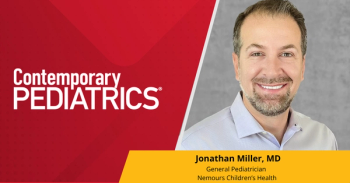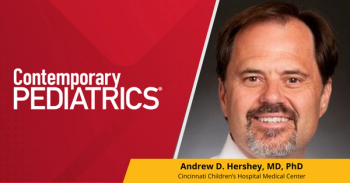
Positive childhood experiences may have greater impact than the bad
A recent study suggests that positive childhood experiences may counter the damaging effects of adverse experiences.
The lifelong negative effects that adverse childhood experiences have on adult mental health are well-established, but new research suggests that positive childhood experiences can help mitigate the damage.
Researchers at Johns Hopkins Bloomberg School of Public Health in Baltimore, Maryland, published a study in
"We found that even among adults with multiple adverse experiences in childhood, those that also had positive experiences-such as caring, warm, and nurturing relationships with friends and a sense of belonging in school and the community-fared much better," Bethell says. "The association between lower rates of depression and poor mental health and positive childhood experiences remained stable across all adults who experienced adverse childhood events, regardless of how many such experiences they reported having. These findings contribute to the growing evidence on ways to buffer the effects of adversity, with a focus on positive relational experiences and adult mental and relational health in an entire population of adults age 18 years and older."
Researchers used data from the 2015 Wisconsin Behavioral Risk Factor Survey, which polled adults by phone on their memories of their positive and negative childhood experiences, as well as their current mental health. Adults were defined in the study as having poor mental health if they had ever been diagnosed with depression, or if they felt depressed or in poor mental health for more than 14 days in a month. According to the report, the research team found that higher numbers of positive experiences in childhood were associated with 72% lower odds of having depression or poor mental health as an adult. Positive experiences were over 3 times more likely to have strong social and emotional support systems in childhood.
“The findings were more striking than we expected. Whereas about 13% of adults with higher levels of positive childhood experiences still went on to experience depression and/or poor mental health as an adult, the rate was 48.2% for those with fewer than 3 such experiences," she says. "A large body of basic science research has given us unequivocal evidence about the importance of consistently caring and responsive parenting to the brain, body, and social and emotional development of children. Without this, a child’s stress hormones can get stuck on high and this has cascading effects on how their brains develop and introduces a wide array of negative effects to a child’s nervous system, hormones, and immune system, as well. With more than 700 new synaptic connections happening every second for a young child, this is a lot of miswiring that can take place."
The absence of positive experiences and parental support can be very stressful for children, she adds.
"Without positive nurturance, children's stress hormones can get stuck on high and this impacts how their brain develops in ways that can make it hard for them to experience safety, relaxation and to become open, curious, and learn to have positive relationships with others," Bethell says. "As a child gets older, the stress introduced by a lack of positive childhood experiences accumulates and can show up as problems with motivation, optimism about life, focus, problem solving, getting along with others, developing a positive self-image and stable sense of self-worth, and managing normal daily stress."
Bethell says the study highlights the need for pediatricians to assess a patient's strengths and positive experiences, and not just their risks.
"Our findings suggest prioritizing assessing the presence of the positive childhood experiences of parent and children, in addition to their health risks, like adverse childhood experiences," Bethell says. "For children, we can promote positive experiences by working with children and in our communities to foster nurturance. This requires building a society-wide caring capacity, which is strongly connected to our well-being."
Evidence-based programs and policies to increase family resilience and connection-another topic Bethell has recently researched-could increase flourishing in US children, even as society addresses remediable causes of childhood adversity, she says.
"When a child is met with loving, attuned, and responsive relationships on a moment-by-moment basis, they are literally learning that life is safe; that they matter; that others can be trusted," Bethell says. "With this, they can feel safe and stay open to explore, be curious, learn and interact with other people in a positive way. Such nurturance makes sure the 'fight, flight, or freeze' stress response does not take hold and stall a child’s healthy development."
Pediatric clinical practice can help facilitate healthy, nurturing parent-child relationships and foster consistent, warm, caring positive relational health in children, Bethell says.
"Building a strong and healthy attachment with a child is fundamental for parents. The consistent warmth, care, and moment-by-moment responsiveness parents offer their child matters more than they may know," she continues. "This remains important all throughout a child’s development, though experiences in the first 3 years of life that lay the foundation are especially critical."
This isn't so easy, however, when parents lacked these experiences in their own childhoods.
"A parents’ well-being is critical to the well-being of their child. To help children we have to help adults so they, in turn, can offer the caring, support, responsiveness, and love children require. A parent who has a poor self-image, struggles to manage stress, and did not experience positive relationships in their own life will have a harder time and needs extra support," Bethell says. "Building positive social norms for healthy parenting and removing stigma from parents seeking help to heal their own early life challenges is critical."
Pediatricians sometimes worry about being overwhelmed by asking questions about positive and negative childhood experiences, especially when questioning parents about their own pasts.
"How do we get all of the information we need in a way that isn't too overwhelming for the pediatrician and promotes a whole child, whole family approach?" Bethell says.
Clinicians fear offending parents or getting too personal, but Bethell says these screenings are highly valuable. She suggests clinicians use pre-visit planning tools to help parents think about what they might want to discuss with the pediatrician before the visit.
Newsletter
Access practical, evidence-based guidance to support better care for our youngest patients. Join our email list for the latest clinical updates.








